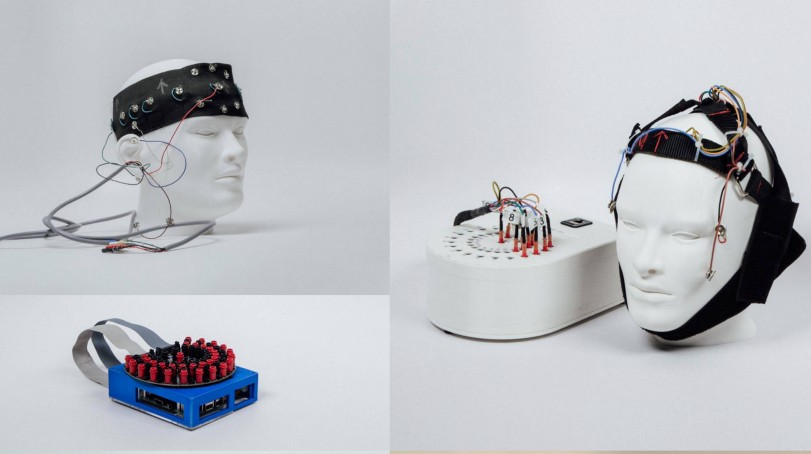 EMERGING TECH
EMERGING TECH
 EMERGING TECH
EMERGING TECH
 EMERGING TECH
EMERGING TECH
Alphabet Inc.’s X unit today detailed Project Amber, an internal initiative launched three years ago to give mental health professionals access to better tools for measuring brain waves.
The unit is now unwinding the initiative and has decided to open source the technologies developed as part of its research efforts. Those technologies include, among others, the design for a compact headset capable of measuring electrical activity in the brain.
X is a research and development unit inside Alphabet with the mission of cultivating “radical new technologies.” Some of the projects that are started at the unit, such as Loon, end up being turned into standalone Alphabet subsidiaries. Others, including Project Amber, are shared with the broader scientific community.
The goal of the newly detailed initiative is to make mental health assessments more accurate. Most often, clinicians perform mental health assessments by asking a series of questions or providing a self-administered standardized survey. Project Amber seeks to augment the information gained from traditional assessments with brain measurements in order to provide additional insights into a person’s well-being.
Neuroscience studies have shown that “certain patterns of electrical activity in the brain correspond with depression symptoms,” Obi Felten, the project lead for Project Amber, wrote in a blog post. However, measuring electrical activity in the brain requires “expensive specialist equipment and highly trained EEG experts to collect, process and interpret the data,” the executive explained, which creates cost barriers that leave clinicians unable to harness this information.
Enter the headset developed as part of Project Amber. It’s described as a low-cost, research-grade system for measuring brain waves. It comprises a series of sensors placed on a lightweight cap that can be put on without the help of highly trained experts and takes about three minutes to set up, according to Alphabet.
The researchers involved in Project Amber also developed machine learning software to process the data collected by the headset. In its raw form, the collected data contains measurements of event-related potential, the medical term for brain activity that occurs in response to a specific sensory, cognitive or motor event. Alphabet’s machine learning software removes any errors that find their way into the measurements, amplifies the valid signals and extracts “interpretable features that are relevant to mental health.”
“We used these features obtained from disentangling autoencoders to predict several clinical labels such as major depressive disorder and generalized anxiety disorder, based on a clinical interview by a mental health expert,” X’s Obi Felten detailed.
The Project Amber team has shared the headset design and the code for the associated machine learning software on GitHub. Alphabet is donating 50 headset prototypes built as part of the project to the nonprofit neuroscience group Sapien Labs.
THANK YOU